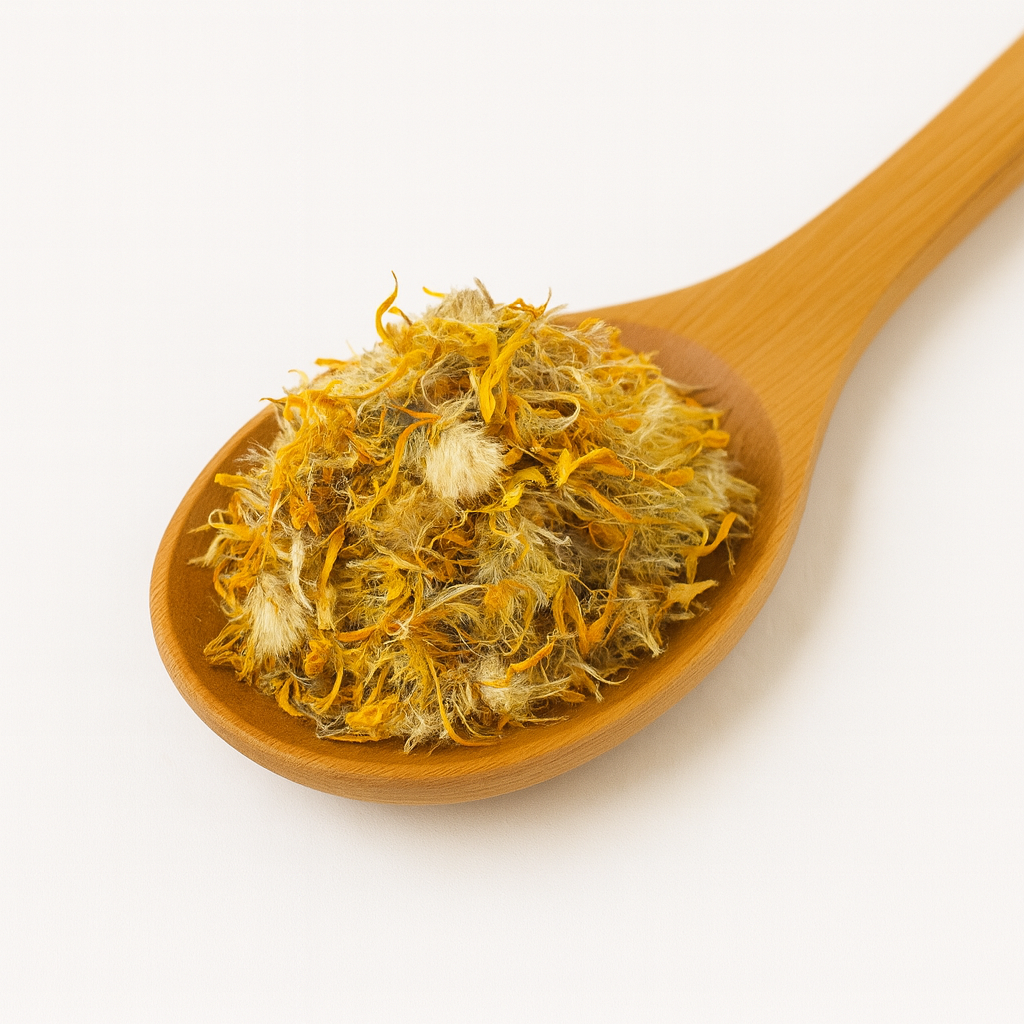My Store
Arnica Flower (not tea)
Arnica Flower (not tea)
Couldn't load pickup availability
🌼 Arnica Flower – Nature’s Remedy for Relief & Recovery
Arnica (Arnica montana) is a bright yellow mountain daisy long valued in traditional European herbalism for its remarkable ability to ease discomfort, reduce swelling, and support recovery. While not typically consumed as tea, arnica is a powerful external-use herb commonly infused into oils, creams, and salves to comfort sore muscles, bruises, and joints.
🌸 Common Uses
- Infused in oils, salves, or creams for topical application on sore muscles and bruises
- Used in compresses for swelling, sprains, and joint discomfort
- Incorporated into massage blends for athletes or post-workout recovery
- Found in homeopathic preparations for internal micro-dosing (specialized use only)
❌ Not a Tea Herb (Important)
Unlike many herbs, arnica should not be consumed as a tea in its raw form—it can be toxic if ingested internally in significant amounts. Instead, use it topically:
- Infused Oil: Steep dried flowers in a carrier oil (olive, jojoba, almond) for 4–6 weeks, then strain and apply to skin
- Salves & Balms: Blend infused oil with beeswax and essential oils for convenient application
- Compresses: Add a few dried flowers to hot water, let cool slightly, soak a cloth, and apply to the affected area
🌱 Benefits
- Soothes Muscles & Joints: Eases tension after physical activity
- Bruise Relief: Helps reduce swelling and discoloration from bumps or injuries
- Anti-Inflammatory: Calms irritation and promotes quicker recovery
- Skin Comfort: Supports minor wound healing and reduces soreness when used externally
⚠️ Risks & Precautions
- Not for Internal Use: Do not drink arnica tea or ingest the raw herb—it can be toxic.
- Skin Sensitivity: May cause irritation in sensitive individuals; always patch test before use.
- Avoid Open Wounds: Should not be applied directly to broken skin.
-
Not for Everyone:
- Pregnant or breastfeeding women should avoid topical use unless approved by a professional
- Individuals with allergies to the daisy family (ragweed, marigolds, daisies) may react to arnica
🌍 Who Should Consider Using It?
- Athletes or active individuals seeking natural post-workout recovery
- People prone to bumps, bruises, or sore joints
- Those seeking a natural alternative to synthetic muscle rubs
🚫 Who Shouldn’t?
- Anyone looking to use it internally as tea (unsafe in raw form)
- Individuals with daisy-family allergies
- Pregnant or breastfeeding women without guidance
- People with very sensitive skin
🌿 Holistic Tips & Herbal Pairings
Arnica works best in blends for topical healing. Consider pairing with:
- Calendula: Gentle flower for skin soothing and wound recovery
- Comfrey: Supports bone, joint, and tissue healing
- St. John’s Wort: Calms nerve pain when infused in oils
- Lavender: Enhances relaxation and adds antimicrobial support
✨ Suggested Ritual: After a workout or a long day, massage an arnica-infused oil into sore muscles while practicing mindful breathing. Pair with a cup of soothing mullein or chamomile tea to comfort the body inside and out.
Share


